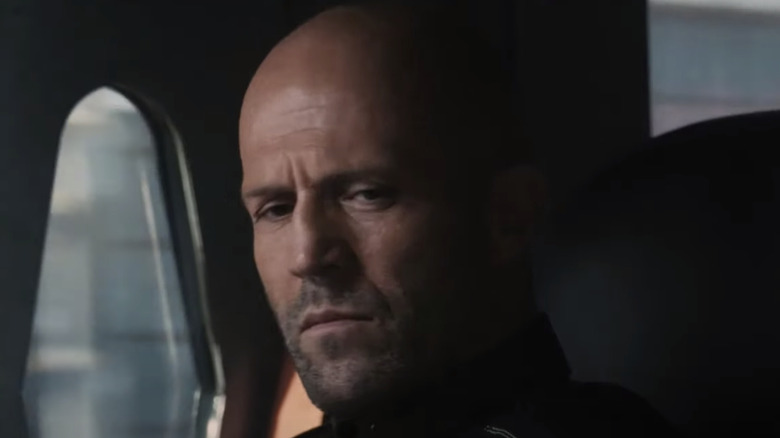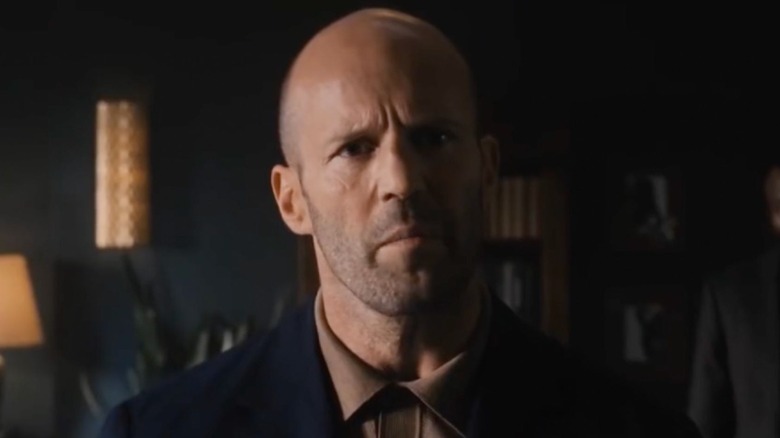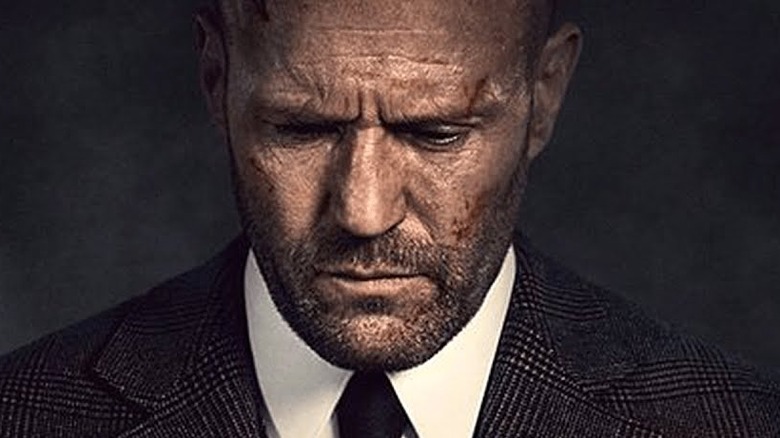The Ending Of Wrath Of Man Explained
"Wrath of Man" is the latest British gangster epic from director Guy Ritchie to explore the seamy underworld of London and the criminals who live there, but it's a much different story compared to earlier films in his career. Unlike "Lock, Stock, and Two Smoking Barrels" or "Snatch," this one isn't played for laughs. The tone is actually quite somber as "H" (played by Jason Statham) embarks on a mission to infiltrate a security guard company in order to find the identities of a group of robbers who killed his son.
The final scene of the film has H confront the man behind his son's death and get his revenge, gunning the man down and standing over his lifeless body. While in other films this might be a moment of triumph, of H delivering righteous vengeance on someone who has wronged him, "Wrath of Man" gives us something decidedly different: the weight of grief and the ultimate emptiness of revenge.
The weight of grief and despair
Jan (played by Scott Eastwood), is held at gunpoint by H, who has him read the autopsy report for Dougie, H's son. H shoots Jan in each organ listed in the report that contributed to his son's death, killing him. While this might initially seem like a triumphant moment, the scene undercuts it in a number of ways. The score is mournful, the gunshots clinical and precise. This isn't just a simple act of revenge: it's H inflicting the precise level of violence used to kill his son to kill Jan.
But for all that clinical detachment, H's mask slips for just a moment as he informs Jan, "By the way, his name was Dougie." There, perhaps for the first time since H lost his son, the pain of his loss bubbles to the surface, the tip of an emotional iceberg he can't push to the side in favor of the mission anymore. Now, with his enemy at his feet and bleeding, H has to face it: Dougie is dead and he's never coming back.
The futility of vengeance
The final shot of the movie slowly pans away from H as the mournful dirge swells, and we see just how utterly bereft H truly is. He accomplished what he'd set out to do: find the man who killed his son and make him pay. In another genre (an action movie, for instance), we'd have no problem with this. The good guy kills the bad guy. Even in a standard tale of revenge, we'd at least feel some grim satisfaction that the wronged party got their closure. But that's just it: H has nothing.
Everything he did to get to that moment was ultimately meaningless because no matter how many criminals he injured or killed over the course of his revenge, his son remains dead. The crushing weight of that loss could be deferred by putting his mission of vengeance first, but in those final moments, the realization on H's' face speaks volumes. This wasn't a tale of revenge. It was a tragedy, with all that sound and fury signifying nothing.


